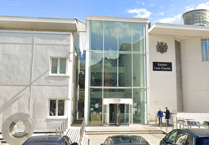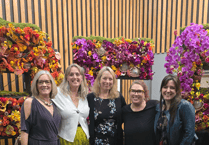DEVON’S towns and parishes are being urged to act “before it is too late” if they want to regain control over key facilities in their areas.
Town and parish councils usually have numerous responsibilities depending on their size, but many day-to-day services include things such as allotments, car parks, festivals and community buses through to open spaces, public toilets and street lighting.
Often, though, district or borough councils, or even county councils, might actually own features within towns and parishes, such as village or town halls, toilet blocks or open space.
That can mean parish and town councils having to rent out the hall in their own community, or not being in control of when toilet facilities are operated.
The call for parishes and towns to start making requests now for the items they want control of comes ahead of one of the biggest shake-ups in local democracy in 50 years known as local government reorganisation (LGR).
The so-called two-tier system that exists in 21 areas of England, including Devon, means that both district/borough and county councils sit above their town and parish equivalents.
Districts and county councils are responsible for different services, but the government wants all councils to become unitary, meaning all services would be run under one roof.
Two of Devon’s existing 11 councils are unitary – Plymouth and Torbay – but Devon County Council and the eight districts below it operate the two-tier system.
Councils have been asked to submit proposals for how Devon’s local authorities could be merged to form new, larger unitary councils.
There are some concerns about how those bigger entities might interact with town and parish councils because of the extra workload upon councillors and officers in those new mega councils.
As such, some are suggesting if towns and parishes want more control over things in their communities, now could be the time to ask.
“If towns and parishes want something, now is the time to do it, not six months before LGR as it will be too late,” Councillor Lance Kennedy (Liberal Democrat, Tiverton Cranmore) said at a Mid Devon District Council meeting.
Cllr Kennedy experienced the move to unitary in Cornwall where he was previously a councillor, stating that the 360 members across the two-tier system there had now been reduced to 87 in the new unitary council.
Councillor Les Cruwys (Liberal Democrat, Tiverton Cranmore) recalled the previous local government reorganisation when district and borough councils were created.
“There were things the districts had to take on, but this is an opportunity to get things back under town and district control,” he said.
Cllr Gwen Duchesne (Liberal Democrat, Halberton), the cabinet member for parish and community engagement, said the offer was there for towns and parishes in Mid Devon to contact the district council with any relevant requests.
The district council recently held an event with its towns and parishes and focused on LGR, in a bid to cover various aspects of the forthcoming change, and to hear experiences of individuals from Somerset Council, which is now unitary.
“It was great to see so many parish and town councillors attend our event, which we really hope bridges the gap between different authorities in Mid Devon,” Cllr Duchesne said.
“Often there is little time for wider, forward-thinking discussion in our day-to-day jobs, but this debate gave us all a chance to work together and listen to each other’s ideas and concerns as well as share valuable updates.”





Comments
This article has no comments yet. Be the first to leave a comment.